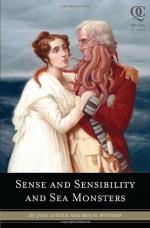|
This section contains 7,072 words (approx. 24 pages at 300 words per page) |

|
SOURCE: "The 'Twilight of Probability': Uncertainty and Hope," Philological Quarterly, Vol. 62, No. 2, Spring, 1983, pp. 171–86.
In the following essay, Johnson discusses Austen's indebtedness to Samuel Johnson's "tradition of doubt" in Sense and Sensibility.
Sense and Sensibility is Jane Austen's least loved and least respected novel. One reason why is that most readers believe that Sense and Sensibility is about its title. Critics typically explain the moral theory relevant to the novel, survey Elinor's and Marianne's predecessors in late eighteenth-century fiction and then almost invariably conclude that neither "sense" nor "sensibility" alone is adequate to human experience.1 The polarized abstractions in the novel's title, however, do not provide the most inclusive or penetrating terms for understanding Sense and Sensibility, and so critical preoccupation with them has produced readings that are simpler and more schematic than the novel itself.
A cursory review of the plot of Sense and Sensibility will disclose...
|
This section contains 7,072 words (approx. 24 pages at 300 words per page) |

|


